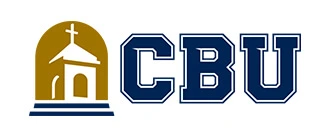Do you have a desire to lead teams, organizations, or companies? Then an online Master of Arts in Organizational Leadership from California Baptist University may be right for you. Continue reading to learn more.
<h2 id="section---FrequentlyAskedQuestions">Frequently Asked Questions</h2>
<h3 id="section---WhatKindOfProgramIsIt">What Kind of Program Is It?</h3>
<p>California Baptist University's Master of Arts in Organizational Leadership is designed to teach students how to become effective leaders across various industries. Students in the program have the opportunity to learn several skills that could aid them in top positions, such as strategic management, communication, decision-making, and human resource management, among others. The curriculum combines theory in areas such as ethics, creativity, and teamwork with application in different organizational settings, for an opportunity to learn the social dynamics of workplace environments. Students will be given the chance to work on a capstone project to demonstrate any knowledge and skills gained in the program.
</p>
<h3 id="section---WhatAreThePrerequisites">What Are the Prerequisites?</h3>
<p>Applicants to the MA in Organizational Leadership program must have a bachelor's degree, official transcripts, and a 2.75 minimum GPA for unconditional acceptance. All applicants to California Baptist University must have a high school diploma or equivalent. Some programs may have additional requirements.
</p>
<h3 id="section---WhatAreTheCourseRequirements">What Are the Course Requirements?</h3>
<p>The organizational leadership program requires 30 credits of courses in business, management, and interpersonal skills. One capstone course is dedicated to completing a long-form project.
</p>
<p><u>Core Course Requirements</u>
</p>
<p />
<table border="1"><tr><th>Course Code</th><th>Course Title</th></tr>
<tr><td>ORG 501</td><td>Foundations of Organizational Leadership</td></tr>
<tr><td>ORG 512</td><td>Conflict Resolution and Negotiations</td></tr>
<tr><td>ORG 523</td><td>Organizational Communication</td></tr>
<tr><td>ORG 534</td><td>Leadership Across Cultures</td></tr>
<tr><td>ORG 545</td><td>Leading Organizational Change</td></tr>
<tr><td>ORG 556</td><td>Practical Financial Management</td></tr>
<tr><td>ORG 567</td><td>Managing Human Capital</td></tr>
<tr><td>ORG 578</td><td>Legal, Ethical, and Public Policy Issues</td></tr>
<tr><td>ORG 589</td><td>Strategic Management</td></tr>
<tr><td>ORG 591</td><td>Organizational Leadership Capstone Innovation Project</td></tr>
</table><h3 id="section---WhatCouldIDoAfterIGraduate">What Could I Do After I Graduate?</h3>
<h4 id="section---CareerOpportunities">Career Opportunities</h4>
<p>Graduates of the MA in Organizational Leadership could pursue management and executive-level leadership positions across a range of industries. With skills in conflict management, communication, and human resources management, graduates could lead an HR department or train new employees. Or, they could pursue business leadership or manage a team of professionals.
</p>
<ul><li>Human resources manager
</li><li>Training and development manager
</li><li>Chief executive officer
</li><li>General/operations manager
</li></ul><h4 id="section---AdvancedDegrees">Advanced Degrees</h4>
<p>Graduates of the program could also pursue a doctoral degree in a business-related field to expand their knowledge, skills, and career opportunities. Doctoral degrees can be beneficial for those who wish to lead and affect change in their industries because they are designed to teach students how to conduct original research, which could contribute to finding new ways to lead organizations. Those with a doctoral degree could also teach at universities.
</p>
<ul><li>Doctor of Education (Ed.D.) in Organizational Change and Administration
</li><li>Ph.D. in Organizational Leadership
</li><li>Doctor of Business Administration
</li><li>Ph.D. in Leadership Studies</li></ul>


.svg)


